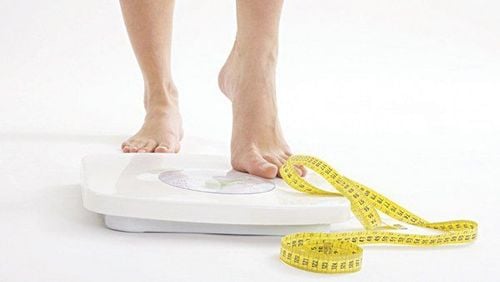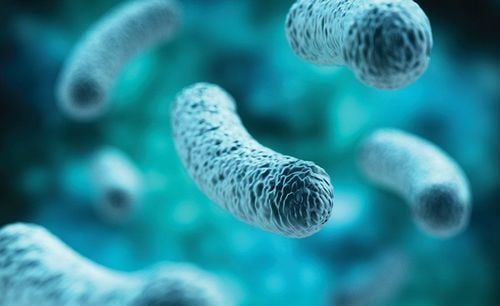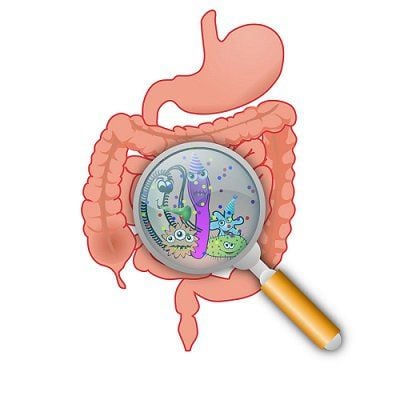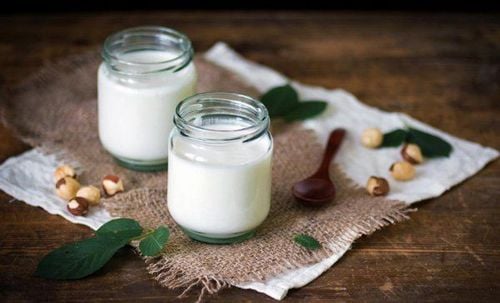This is an automatically translated article.
Probiotics are getting a lot of attention lately. These live probiotic products have been documented to provide all sorts of health benefits related to gut function and more. However, not all foods high in probiotics are right for you.
If you're looking to use them to promote health, it's important to make sure you take the right probiotic supplements to get the results you're looking for.
1. What are probiotics?
Your gut contains bacteria acquired at birth and in later life through a process called colonization.
Many of these bacteria are considered beneficial. They have many functions including converting fiber into short-chain fatty acids, synthesizing certain vitamins, and supporting your immune system.
Using probiotics can help increase the number of these beneficial bacteria. The official definition of probiotics is, “a live microorganism that, when administered in appropriate amounts, confers a health benefit on the host”.
Basically, probiotics are microorganisms that provide beneficial effects when used in appropriate amounts. Probiotics can be taken in supplement form or from fermented foods like sauerkraut, kefir, and yogurt.
Probiotics should not be confused with prebiotics - a type of fiber that acts as a food source for the bacteria that live in your large intestine.
Certain probiotic products may have specific benefits. Probiotics that have been found to provide health benefits include different strains of Bifidobacterium, Lactobacillus and Saccharomyces. Many probiotic supplements contain combinations of different strains in the same supplement.
Research has shown that some strains of bacteria seem to be more effective than others in treating certain diseases. So you are more likely to get good results by taking a product that has been shown to achieve specific effects, such as controlling diarrhea.
Also, it is important that you consume the required amount of probiotics. Probiotics dosage is usually measured in colony-forming units (CFUs). In general, higher doses have been shown to produce the best results in most studies.
However, some products may be effective at dosages of 1–2 billion CFU per day, while others may require at least 20 billion CFU to achieve the desired effect.
Taking extremely high doses of probiotics has not been found to be harmful. One study showed that people taking doses up to 1.8 trillion CFUs per day experienced no problems. However, it is expensive and does not seem to provide any additional benefits.
However, until now scientists did not know everything about probiotics. There is still much to be discovered about probiotics, although research has rapidly expanded over the past few years.
2. What are the effects of Probiotics supplements?
2.1. Probiotics can help relieve constipation Constipation is difficult, difficult, and infrequent bowel movements. Everyone experiences constipation at least once in their life, but for some it becomes a chronic problem.
Chronic constipation is most common in the elderly and bedridden adults, but it can also occur in children. Additionally, some people with irritable bowel syndrome also experience persistent constipation, which may be their main symptom.

Người bị táo bón nên bổ sung thực phẩm chứa nhiều probiotics
Common constipation treatments include laxatives and stool softeners. However, dietary changes and probiotic supplements have become an alternative in the treatment of constipation in recent years.
Several studies have shown that supplementing with certain strains of probiotics can relieve constipation in both adults and children. In a study comparing the effects of probiotics and prebiotics in children with irritable bowel syndrome, B. lactis significantly reduced constipation.
The probiotics group also had less belching, bloating and postprandial bloating than the prebiotics group.
Other probiotics that may improve constipation include B. longum, S. cerevisiae and a combination of L. acidophilus, L. plantarum, L. reuteri, L. rhamnosus and B. animalis.
2.2. Probiotics Can Improve IBS Symptoms Sometimes the main symptoms of IBS are not related to stool consistency or frequency. Instead, some patients frequently experience bloating, gas, and bloating. gas, nausea and lower abdominal pain.
A review based on 19 studies found that while some patients reported improvement in IBS symptoms when taking probiotics, the results varied between individuals. The researchers were unable to determine which probiotics were most effective.
Also, because the symptoms of irritable bowel syndrome are so varied, sometimes one symptom improves while others do not.
For example, a study of people with IBS primarily due to constipation found that although S. cerevisiae improved constipation, it did not have much of an effect on abdominal pain or discomfort.
In another study, participants with irritable bowel syndrome predominantly with diarrhea were given a product supplement containing strains of Lactobacillus, Bifidobacterium, and Streptococcus. Results showed that bowel movements and consistency did not improve, but symptoms of bloating did.
Another study showed a significant reduction in pain and bloating during treatment with the above probiotic product. Researchers believe that probiotics lead to an increase in melatonin, which is a hormone involved in digestive function.
2.3. Probiotics can help you lose weight There is growing evidence that the balance of your gut bacteria can have a profound effect on your body weight. Several studies have shown that taking probiotic supplements can be helpful in losing weight and staying healthy.
Animal and human studies have found that certain strains of bacteria can reduce the amount of fat and calories absorbed by the gut, promote a healthy balance of gut bacteria, and reduce weight and belly fat.
According to a 2014 analysis based on several studies, probiotics that appear to be effective for fat loss include Lactobacillus rhamnosus, Lactobacillus gasseri and a combination of Lactobacillus rhamnosus and Bifidobacterium lactis.
In one study, obese men who were given L. gasseri for 12 weeks experienced a significant reduction in body weight and body fat, specifically up to 8.5% reduction in belly fat.
In another study, obese women who were given L. rhamnosus for three weeks lost twice as much weight as those given a placebo. Interestingly, they continued to lose weight during the study's maintenance period, while the placebo group gained weight.

Bổ sung Probiotic giúp bạn giảm cân đáng kể
Probiotic supplements can also help limit weight gain when you consume a lot of calories. In a 4-week study, thin young men ate 1,000 extra calories per day. Those taking probiotics products gained less weight than the control group.
However, researchers feel there is not enough evidence to draw firm conclusions about the effects of probiotics on weight loss at this time.
2.4. Probiotics to support brain health Gut and brain health are closely linked. Bacteria in the large intestine digest and ferment fiber into short-chain fatty acids that nourish the intestines. Research has shown that these compounds may also benefit the brain and nervous system.
A review of 38 animal and human studies found that various probiotics improved symptoms of depression, autism, anxiety, obsessive-compulsive disorder and poor memory.
The bacterial strains commonly used in these studies were Bifidobacterium longum, Bifidobacterium breve, Bifidobacterium infantis, Lactobacillus helveticus and Lactobacillus rhamnosus.
Probiotics appear to be effective for both generalized anxiety and anxiety related to specific causes. One study found that when nasopharyngeal cancer patients took probiotics for two weeks before surgery, they had lower blood stress hormone levels and a 48 percent reduction in anxiety.
In other studies, probiotics have been shown to improve overall mood and reduce sadness in healthy individuals and in patients with chronic fatigue syndrome.
Probiotic supplements can also help you cope with depression, even those with major depressive disorder. In an 8-week study of patients with major depression, those taking L. casei, L. acidophilus, and B. bifidum experienced significant reductions in depression.
2.5. Probiotics May Improve Heart Health Taking probiotics may help reduce the risk of cardiovascular disease. Some studies have found that certain strains of bacteria in yogurt or probiotic supplements can lead to beneficial changes in markers of heart health. Those beneficial changes include lowering “bad” LDL cholesterol and increasing “good” HDL cholesterol.
Specific strains of bacteria that are thought to be effective in lowering cholesterol levels include Lactobacillus acidophilus, Lactobacillus reuteri, and Bifidobacterium longum.
An analysis of 14 studies found probiotics to moderate LDL cholesterol, slightly increase HDL, and lower triglycerides. There may be several processes responsible for these effects, including changes in fat metabolism and decreased absorption of cholesterol in the gut.
A review based on 9 controlled studies found a slight decrease in blood pressure in people taking probiotics. However, more than eight weeks of use with a higher dose of 10 billion CFU per day has been found to have a significant effect.
2.6. Probiotics for Boosting Immunity Studies show that taking probiotic supplements can help change the balance of gut bacteria in a way that enhances defenses against infections, allergies, and cancer.
Especially strains of Lactobacillus GG, Lactobacillus gasseri, Lactobacillus crispatus, Bifidobacterium bifidum and Bifidobacterium longum. These strains of bacteria seem to reduce the risk of respiratory disease and eczema in children, as well as reduce the risk of urinary tract infections in adult women. In addition, probiotics have been shown to reduce inflammation, which is a risk factor for many different diseases.
In one study, older adults consumed a mixture of Lactobacillus gasseri, Bifidobacterium bifidum and Bifidobacterium longum or a placebo for three weeks. After probiotic supplementation, inflammatory markers decreased, anti-inflammatory markers increased, and the gut microbial balance became similar to that of the gut microbiota in young, healthy individuals.
Some probiotic products can also help prevent gingivitis or gum infections. One 14-day study looked at adults who didn't brush and floss while given either a Lactobacillus brevis supplement or a placebo. The results showed that gingivitis progressed faster in the placebo group, suggesting that probiotics helped protect against infection.

Bổ sung thực phẩm chứa nhiều probiotics giúp bạn tăng cường miễn dịch
2.7. Probiotics for General Health In addition to using probiotics for specific diseases and conditions, you can also take probiotics to promote overall health.
A recent study performed in healthy adults found that taking Bifidobacterium bifidum for four weeks increased production of beneficial short-chain fatty acids. There's also some evidence that probiotics can reduce inflammation that often occurs as you age.
Of course, along with taking probiotics supplements you also have to make sure you're eating a healthy diet and practicing other health-promoting behaviors. Without taking measures as a whole, you can't expect probiotics to give you much benefit.
Also, while probiotics are safe for most people, they can be harmful to people who are very sick or have compromised immune systems, including those with HIV or AIDS. .
Having a healthy gut microbiome is extremely important. Although research is still ongoing, probiotics appear to have beneficial effects on a number of different health conditions and may also support better overall health. Taking the right probiotics product right can help you target specific health problems and improve your overall health and quality of life.
If you have a need for consultation and examination at Vinmec Hospitals of the national health system, please book an appointment on the website (vinmec.com) for service.
Please dial HOTLINE for more information or register for an appointment HERE. Download MyVinmec app to make appointments faster and to manage your bookings easily.
Reference source: healthline.com












